第40章
It is to be regretted that a chasm which exists in its historycannot be more completely filled. So far as regards the person,the parent, when our information commences, has over his childrenthe jus vitae necisque, the power of life and death, and afortiori of uncontrolled corporal chastisement; he can modifytheir personal condition at pleasure; he can give a wife to hisson; he can give his daughter in marriage; he can divorce hischildren of either sex; he can transfer them to another family byadoption; and he can sell them. Late in the Imperial period wefind vestiges of all these powers, but they are reduced withinvery narrow limits. The unqualified right of domesticchastisement has become a right of bringing domestic offencesunder the cognisance of the civil magistrate; the privilege ofdictating marriage has declined into a conditional veto; theliberty of selling has been virtually abolished, and adoptionitself, destined to lose almost all its ancient importance in thereformed system of Justinian, can no longer be effected withoutthe assent of the child transferred to the adoptive parentage. Inshort, we are brought very close to the verge of the ideas whichhave at length prevailed in the modern world. But between thesewidely distant epochs there is an interval of obscurity, and wecan only guess at the causes which permitted the Patria Potestasto last as long as it did by rendering it more tolerable than itappears. The active discharge of the most important among theduties which the son owed to the state must have tempered theauthority of his parent if they did not annul it. We can readilypersuade ourselves that the paternal despotism could not bebrought into play without great scandal against a man of full ageoccupying a high civil office. During the earlier history,however, such cases of practical emancipation would be rarecompared with those which must have been created by the constantwars of the Roman republic. The military tribune and the privatesoldier who were in the field three-quarters of a year during theearlier contests, at a later period the proconsul in charge of aprovince, and the legionaries who occupied it, cannot have hadpractical reason to regard themselves as the slaves of a despoticmaster; and all these avenues of escape tended constantly tomultiply themselves. Victories led to conquests, conquests tooccupations; the mode of occupation by colonies was exchanged forthe system of occupying provinces by standing armies. Each stepin advance was a call for the expatriation of more Roman citizensand a fresh draft on the blood of the failing Latin race. We mayinfer, I think, that a strong sentiment in favour of therelaxation of the Patria Potestas had become fixed by the timethat the pacification of the world commenced on the establishmentof the Empire. The first serious blows at the ancient institutionare attributed to the earlier Caesars, and some isolatedinterferences of Trajan and Hadrian seem to have prepared theground for a series of express enactments which, though we cannotalways determine their dates, we know to have limited thefather's powers on the one hand, and on the other to havemultiplied facilities for their voluntary surrender. The oldermode of getting rid of the Potestas, by effecting a triple saleof the son's person, is evidence, I may remark, of a very earlyfeeling against the unnecessary prolongation of the powers. Therule which declared that the son should be free after having beenthree times sold by his father seems to have been originallymeant to entail penal consequences on a practice which revoltedeven the imperfect morality of the primitive Roman. But evenbefore the publication of the Twelve Tables it had been turned,by the ingenuity of the jurisconsults, into an expedient fordestroying the parental authority wherever the father desiredthat it should cease.
Many of the causes which helped to mitigate the stringency ofthe father's power over the persons of his children are doubtlessamong those which do not lie upon the face of history. We cannottell how far public opinion may have paralysed an authority whichthe law conferred, or how far natural affection may have renderedit endurable. But though the powers over the person may have beenlatterly nominal, the whole tenour of the extant Romanjurisprudence suggests that the father's rights over the son'sproperty were always exercised without scruple to the full extentto which they were sanctioned by law. There is nothing toastonish us in the latitude of these rights when they first showthemselves. The ancient law of Rome forbade the Children underPower to hold property apart from their parent, or (we shouldrather say) never contemplated the possibility of their claiminga separate ownership. The father was entitled to take the wholeof the son's acquisitions, and to enjoy the benefit of hiscontracts; without being entangled in any compensating liability.